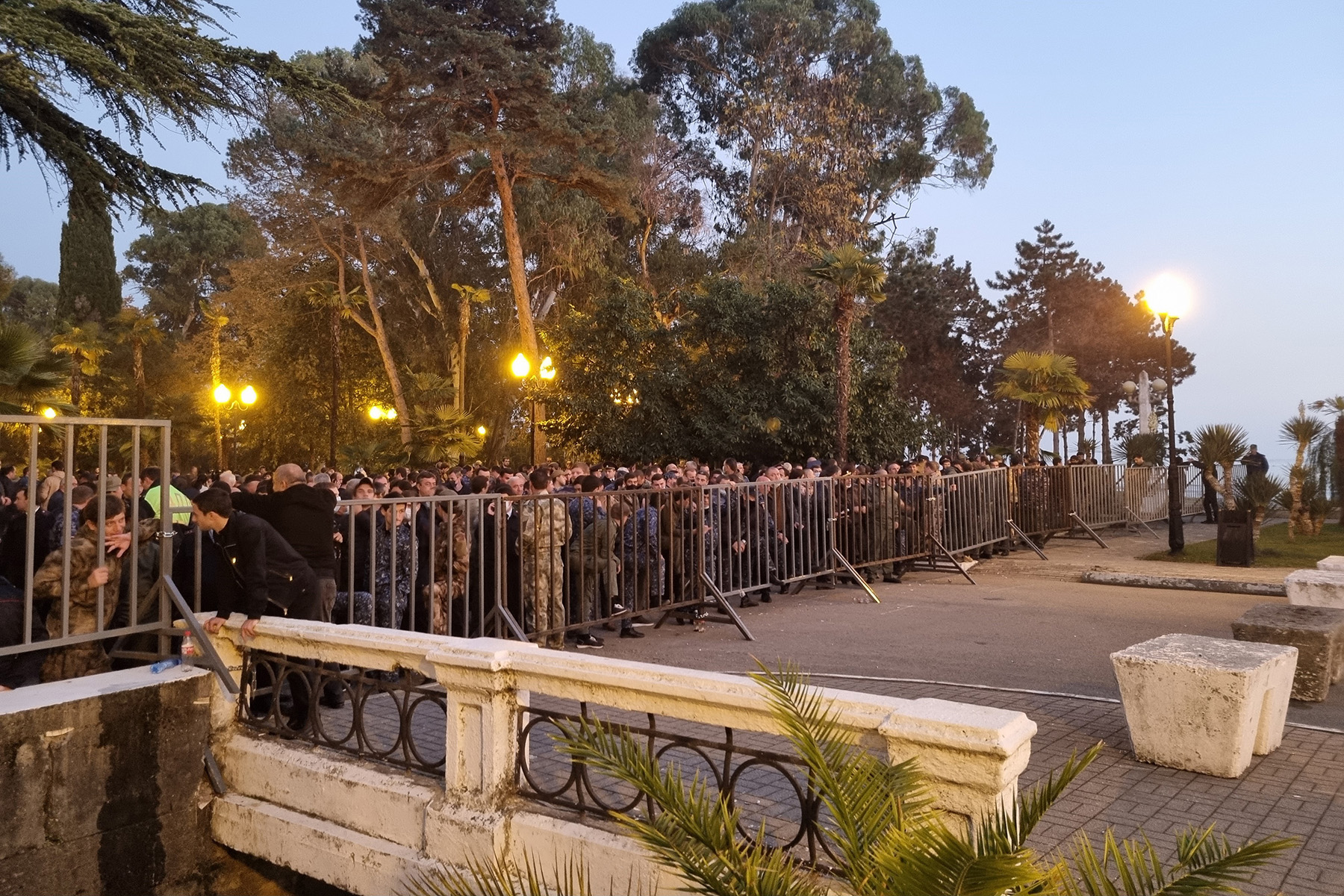
Around 300 Abkhazian veterans and opposition supporters have held a protest near the Presidential Administration following the reappointment of embattled Interior Minister Dmitry Dbar.
There was a heavy police presence outside the building during Thursday’s demonstration, with metal fences erected to protect the government complex. A similarly sized counter-demonstration by supporters of President Aslan Bzhania was also held directly in front of the Presidential Administration.
The two gatherings took place despite the mayor of Sukhum (Sukhumi) forbidding them, citing the pandemic.
The Minister of Internal Affairs, Dmitry Dbar, took back his post on Tuesday. He was suspended pending the results of an investigation into a brawl between police and a group of veterans on 30 September. The brawl took place after MP Garry Kokaya, a veteran of the 1992–1993 War in Abkhazia himself, refused to surrender his gun after firing it into the air.
The Prosecutor General’s Office announced on 11 October that they had found no signs of a crime in the minister’s actions. An investigation is ongoing into two deputy interior ministers for abuse of office.
[Read more on OC Media: Veterans call for dismissal of Abkhazian interior minister after brawl with police]
President Bzhania under fire
The protest was organised by Aruaa, a group of veterans associated with former President Raul Khadzhimba, as well as several other opposition groups.
During the demonstration, the protesters adopted a resolution calling for the Interior Minister to step down.
Several of the protest leaders also met with President Bzhania, however, after two hours of talks, they emerged and announced they had not received a satisfactory response.
Vitaly Gabniya, a former vice-president of Abkhazia and a member Aruaa, told the waiting crowds that the president had urged them to wait for the conclusion of the investigation into the events of 30 September.
The protest leaders said they would convene a ‘People’s Assembly’, where they would demand the resignation of the President.
President Bzhania, meanwhile, addressed his supporters from the porch of the Presidential Administration, urging people not to divide into ‘friends and foes’ and wait for the dispute to be resolved in a legal way.

During the opposition demonstration, several prominent activists and veterans spoke out against the authorities.
Akhra Bzhania, the chair of the Akhyatsa opposition group, said that the violence against veterans on 30 September was an extraordinary event.
Valeri Maan, a veteran and resident of the village of Adzyubzha, said that the president’s decision not to dismiss the Interior minister showed that he lacked independence, and that ‘others make decisions for him’.
‘We don’t have a head of state, we don’t have a president, our state is beheaded’, he said.
The primary geographic terms used in this article are those of the author’s. For ease of reading, we choose not to use qualifiers such as ‘de facto’, ‘unrecognised’, or ‘partially recognised’ when discussing institutions or political positions within Abkhazia, Nagorno-Karabakh, and South Ossetia. This does not imply a position on their status.








